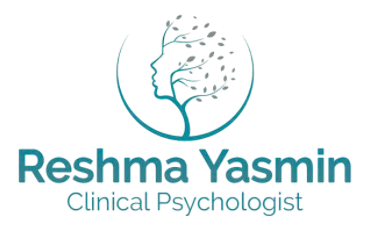
The Role of Therapy in Managing Personality Disorders
Personality disorders are a group of mental health conditions characterized by enduring patterns of thoughts, feelings, and behaviors that deviate significantly from cultural expectations. These patterns often lead to distress and impaired functioning across various life domains. Effective management of personality disorders typically involves a comprehensive approach that includes therapy as a central component. This article explores the crucial role of therapy in managing personality disorders, examining different therapeutic modalities and their benefits.
Understanding Personality Disorders
Personality disorders encompass a range of conditions, including borderline personality disorder (BPD), narcissistic personality disorder (NPD), obsessive-compulsive personality disorder (OCPD), and others. These disorders can profoundly affect an individual’s relationships, self-image, and daily functioning. Therapy aims to address these disruptive patterns, helping individuals lead more fulfilling and functional lives.
The Role of Therapy in Managing Personality Disorders
**1. Self-Awareness and Insight
Therapy plays a pivotal role in fostering self-awareness and insight. Many individuals with personality disorders may have difficulty recognizing how their thoughts and behaviors contribute to their problems. Through therapeutic processes, clients gain a deeper understanding of their condition, including how their personality traits affect their relationships and daily functioning. This self-awareness is the first step toward meaningful change.
**2. Cognitive and Behavioral Changes
Cognitive-behavioral therapy (CBT) is particularly effective in addressing maladaptive thought patterns and behaviors associated with personality disorders. For instance, individuals with borderline personality disorder (BPD) might experience intense and unstable emotions, leading to impulsive behavior. CBT helps by identifying and challenging negative thought patterns and developing healthier coping mechanisms. By modifying dysfunctional thoughts and behaviors, individuals can improve their emotional regulation and interpersonal skills.
**3. Emotional Regulation
Many personality disorders involve difficulties in regulating emotions. Dialectical behavior therapy (DBT), an adaptation of CBT, is especially beneficial for individuals with BPD, where emotional dysregulation is a core feature. DBT combines cognitive-behavioral techniques with mindfulness strategies to help individuals manage intense emotions, reduce self-destructive behaviors, and enhance interpersonal effectiveness. Learning to regulate emotions effectively can lead to more stable and satisfying relationships.
**4. Building Interpersonal Skills
Interpersonal effectiveness is a critical focus in therapy for personality disorders. Individuals with disorders such as avoidant personality disorder or dependent personality disorder often struggle with relationships. Therapists work with clients to develop and practice essential social skills, such as assertiveness, effective communication, and conflict resolution. Improved interpersonal skills can lead to healthier and more satisfying relationships.
**5. Developing Coping Strategies
Therapy helps individuals with personality disorders develop adaptive coping strategies. For example, individuals with obsessive-compulsive personality disorder (OCPD) may benefit from learning techniques to manage anxiety and reduce perfectionistic tendencies. Therapists work with clients to identify practical and effective coping mechanisms, which can improve daily functioning and overall quality of life.
**6. Addressing Co-occurring Conditions
Personality disorders often co-occur with other mental health conditions, such as depression, anxiety, or substance abuse. Therapy can address these co-occurring conditions simultaneously. Integrated treatment approaches ensure that all aspects of a person’s mental health are considered, leading to more comprehensive and effective care.
Therapeutic Modalities
Several therapeutic approaches are particularly effective in managing personality disorders:
**1. Cognitive-Behavioral Therapy (CBT): Focuses on changing maladaptive thought patterns and behaviors.
**2. Dialectical Behavior Therapy (DBT): Combines cognitive-behavioral techniques with mindfulness to address emotional dysregulation.
**3. Schema Therapy: Aims to identify and change deeply ingrained patterns of thinking and behavior.
**4. Psychodynamic Therapy: Explores how unconscious processes and past experiences influence current behavior and relationships.
**5. Interpersonal Therapy (IPT): Focuses on improving interpersonal relationships and communication skills.
The Importance of a Collaborative Approach
Therapy for personality disorders is most effective when it involves a collaborative approach between the therapist and the client. Building a strong therapeutic alliance is essential for successful treatment. The therapist’s role includes providing support, empathy, and guidance while helping the client set and achieve therapeutic goals.

0 comments